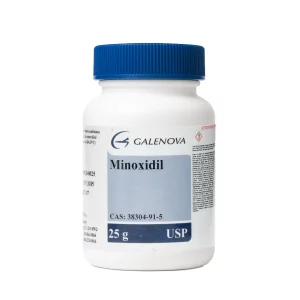Your cart is empty.
Your cart is empty.
Metformin is a medication primarily used to treat type 2 diabetes and belongs to the biguanide class of drugs. It works by:
Although not officially approved for Polycystic Ovary Syndrome (PCOS), metformin is often used for its effectiveness in managing insulin resistance. It lowers insulin and androgen levels, decreasing testosterone and alleviating symptoms like hirsutism and acne. Additionally, it improves ovulation, regulates menstrual cycles, supports metabolic health, and helps reduce the risk of type 2 diabetes and heart disease.
Research into Metformin and aging has garnered increasing attention, exploring its potential effects beyond diabetes management. The Metformin dosage varies depending on the individual and the condition being treated, and it is crucial to follow a healthcare professional’s guidance. It is important to note that it is not appropriate to order Metformin without a valid prescription from a qualified healthcare provider.
PCOS is a common endocrine disorder that affects women of reproductive age. PCOS is marked by a combination of symptoms and hormonal imbalances, including:
The exact cause of PCOS is not fully understood, but it likely involves genetic and environmental factors. Common symptoms include insulin resistance, elevated androgen levels, acne, and ovulatory dysfunction.
Management strategies include:
Metformin is an oral medication in the biguanide drug class primarily used to treat type 2 diabetes. It has been a first-line treatment since the 1950s due to its effectiveness in lowering blood sugar levels and favorable side effect profile.
Metformin lowers blood sugar through several mechanisms:
Metformin is also popular for treating PCOS due to its benefits on insulin resistance and metabolic dysfunction. Its key advantages include:
Through improved insulin regulation, metformin helps manage PCOS symptoms effectively, promoting better hormonal and metabolic health.

Metformin offers several benefits for individuals with PCOS, particularly in restoring menstrual regularity by improving insulin sensitivity and reducing androgen levels. This can lead to more predictable menstrual cycles, addressing issues like irregular or absent periods.
For those experiencing infertility, metformin can support ovulation by correcting hormonal imbalances, thus increasing the likelihood of conception.
Additionally, metformin’s ability to lower androgen production can help reduce symptoms such as acne and hirsutism (excess hair growth). It also positively impacts metabolic health by lowering blood glucose levels, improving lipid profiles, and reducing the risk of type 2 diabetes, which is a significant concern for those with PCOS.
Unmanaged PCOS can significantly increase the risk of several long-term health problems, including:
Metformin can be an important part of preventing long-term health risks. It helps improve insulin sensitivity and overall metabolic health, which can:
Metformin for PCOS supports the larger goals of promoting a healthy metabolism and reducing inflammation.
The typical starting dose of metformin for PCOS is 500 mg once or twice daily, gradually increasing to a maintenance dose of 1500-2000 mg per day, divided into doses. Extended-release formulations are preferred to minimize gastrointestinal side effects.
Consult a healthcare provider for personalized dosage and monitoring. Regular check-ups and blood tests help assess treatment effectiveness, while tracking symptoms like menstrual regularity and acne is important for necessary adjustments.
Metformin is most effective when combined with lifestyle changes, including a whole-food diet, regular exercise, and stress management techniques, to enhance insulin sensitivity and overall health.

By improving insulin sensitivity, metformin reduces excess androgen production, which helps restore hormonal balance.
Many users notice improvements in menstrual regularity and energy within 2–3 months.
It may support gradual weight loss by improving metabolic function, especially when combined with lifestyle changes.
No, it’s often prescribed off-label for non-diabetic individuals with PCOS to support hormone regulation.
Yes, it may help induce ovulation in people experiencing infertility due to hormonal imbalances.


Acarbose blocks carbohydrate breakdown in the small intestine, preventing rapid glucose absorption spikes.

Dasatinib eliminates senescent cells through selective apoptosis, clearing age-damaged tissues from the body.

Metformin inhibits hepatic glucose production while enhancing insulin sensitivity, offering cost-effective Type 2 diabetes management.

Minoxidil dilates scalp blood vessels, increasing nutrient delivery to hair follicles while extending the anagen growth phase duration.
Unlock savings on bundles and elevate your online experience today!